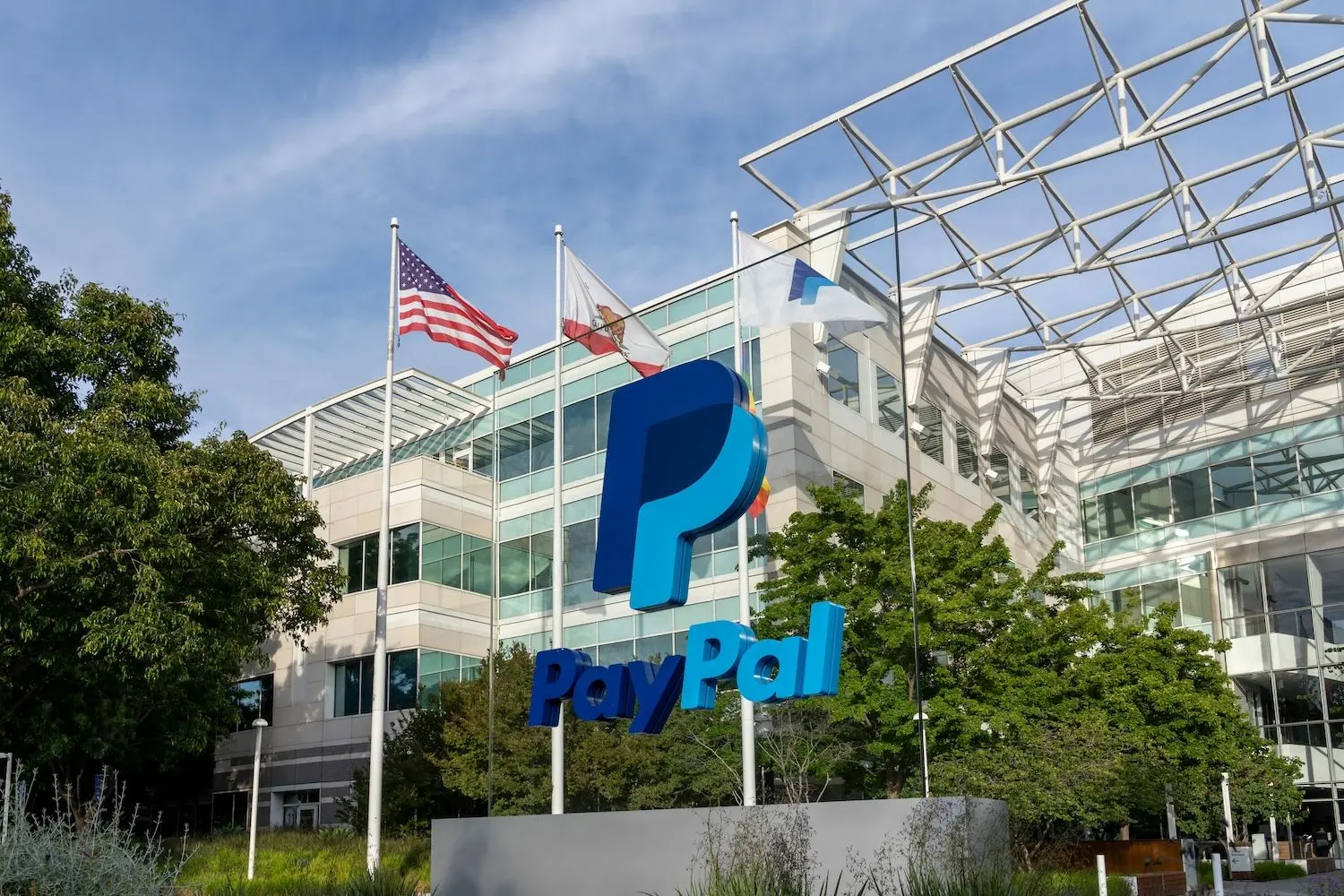PayPal shares climbed 10% Tuesday after the company announced a partnership with OpenAI that will enable ChatGPT's 800 million weekly users to purchase products through the payment platform. The company also raised its annual profit forecast for the second time this year and declared its first dividend in its 27-year history, marking what CEO Alex Chriss characterized as a shift "from defense to offense."
What to Know:
- PayPal will integrate its global merchant network with ChatGPT, allowing businesses to sell directly through the artificial intelligence platform that serves more than 800 million weekly active users.
- The company increased its full-year adjusted earnings per share forecast to between $5.35 and $5.39, up from a previous range of $5.15 to $5.30, and announced a quarterly dividend of 14 cents per share.
- The partnership positions PayPal at the center of emerging agentic commerce, where AI tools autonomously research, compare and purchase products on behalf of consumers.
Strategic Alliance Targets AI-Driven Shopping
The OpenAI agreement connects PayPal's merchant network to ChatGPT, transforming the conversational AI platform into a sales channel. Businesses will gain access to millions of potential customers who use the chatbot for tasks ranging from research to problem-solving. The integration makes products discoverable and purchasable without users leaving the ChatGPT interface.
"We want PayPal to be available anywhere and everywhere that consumers want to pay and we want merchants to be able to sell to consumers anywhere and everywhere," Chriss told analysts during a conference call.
The partnership reflects broader competition among financial services firms to embed payment systems into emerging AI platforms.
Wall Street analysts at Evercore ISI described agentic commerce as a potential catalyst for PayPal's growth strategy. The firm noted the development "could be a next-gen commerce platform" that leverages PayPal's user base, though analysts cautioned "it's still very early days."
AI shopping tools function as digital assistants by processing user preferences, establishing budgets, analyzing product reviews and monitoring price fluctuations. These systems represent what some analysts view as the next fundamental change in online retail, following earlier shifts from catalog shopping to e-commerce and mobile payments.
Financial Turnaround Under New Leadership
PayPal reported third-quarter revenue of $8.4 billion, representing 6% growth on a currency-neutral basis. The company's adjusted earnings per share reached $1.34 for the three months ending September 30, compared with $1.20 during the same period last year. Total payment volume increased 7% on a foreign exchange-neutral basis to $458.1 billion.
The board approved a quarterly dividend of 14 cents per share, establishing a payout ratio of 10% based on adjusted profit. The dividend marks the first in the company's history since its 1998 founding as a subsidiary of Confinity.
Management raised its full-year adjusted earnings outlook to a range of $5.35 to $5.39 per share, exceeding the previous forecast of $5.15 to $5.30.
Analysts surveyed by LSEG had projected $5.24 per share. The improved guidance reflects resilient consumer spending despite inflationary pressures and economic uncertainty.
Chriss has restructured PayPal's operations since taking the helm, emphasizing profitability over revenue expansion.
The company experienced declining growth as pandemic-era e-commerce trends normalized and consumers returned to physical retail locations. Management responded by concentrating on high-margin business lines and implementing cost reduction measures.
Payment volumes have sustained steady growth as consumers maintain spending patterns despite broader economic headwinds. The stability demonstrates the durability of PayPal's core transaction processing business, which generates revenue from fees charged to merchants and consumers.
Understanding Agentic Commerce
Agentic commerce refers to AI systems that act on behalf of users to complete purchasing decisions autonomously. These platforms go beyond traditional recommendation engines by executing transactions based on learned preferences and predetermined parameters. The technology relies on large language models that can interpret natural language requests, search multiple merchants and complete purchases within conversational interfaces.
Financial institutions and technology companies are racing to integrate payment systems into AI platforms as the sector experiences what investors describe as an AI-driven transformation. Banks, payment processors and fintech firms are competing to position their services as the default option for AI-facilitated transactions.
Closing Thoughts
The OpenAI partnership and improved financial guidance signal PayPal's transition from a period of stagnation to renewed expansion under Chriss's leadership. The company has stabilized its core business while pursuing integration with emerging technology platforms. The dividend declaration indicates management confidence in sustained cash flow generation and profitability.



